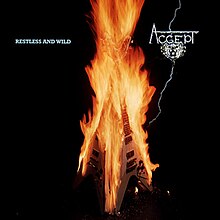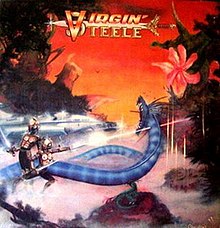
After a series of heavier records, Breaking the Taboo is an overall more diversified release with a more melancholic, melodic and catchy direction. The record goes back to the band's commercially successful heavy metal and glam rock era from the mid-eighties to the early nineties without adding anything new to the formula. The record has a nostalgic charm and emotional melodies but also feels quite dated and is at times lacking imagination.
The album still has its highlights. ''Damnation'' has a really addicting chorus and recalls the band's classic heavy metal and glam rock material of the mid-eighties. If you like Loudness, you will love this track despite its bland predictability. ''I Wish'' finds the right balance between melancholic melodies and uplifting vocals which makes this track stand out. ''The Love of My Life'' is a dynamic, raw and rhythmic half-ballad with great guitar play and turns out being one of this record's most original and memorable tunes. The emotional closer ''Without You'' is another track to remember with skillful melodic guitar play, passionate vocals with the right balance between melodic lines and a raw undertone and an epic atmosphere that unfolds precisely in just four minutes. These two mellower half-ballads are clearly the best songs on an otherwise unspectacular album.
There are also a whole bunch of fillers on here that offer heavy metal by the numbers. Twelve songs with a running time of nearly fifty-seven minutes are a little bit too much and especially the first third of the record is quite unspectacular. Breaking the Taboo often feels like a compilation revisiting Loudness' most commercially successful eras of the past without adding anything new to the mixture. While the previous releases gave the band a heavy, passionate and raw identity, Breaking the Taboo is lacking its own style and is an overall forgettable release with a few enjoyable highlights.
To keep it short, Breaking the Taboo is the band's weakest release in five years, since the average reunion record Spiritual Canoe. This album is only interesting for faithful traditional heavy metal and glam rock fans as well as for collectors. Breaking the Taboo is still an overall enjoyable heavy metal record with a few highlights but it just doesn't stick out in Loudness' impressive discography.
























